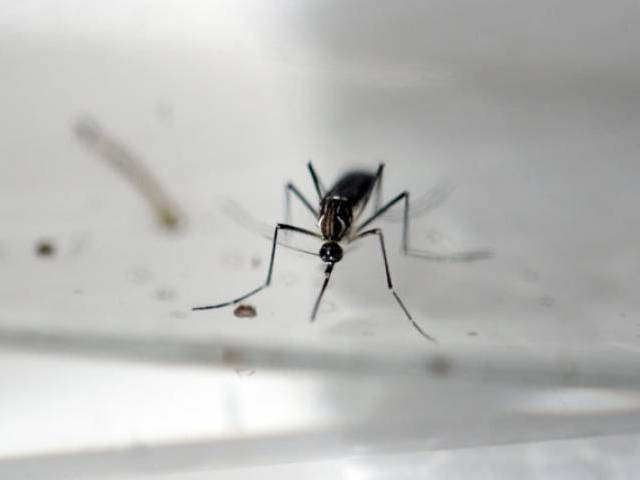Viral disease: Is Lahore at risk of Chikungunya?
Expert says piles of garbage lying around city may spread the virus

Chikungunya is a mosquito-borne viral fever. PHOTO: AFP
“People must keep their environment clean as the illness can affect the eyes, aggravate the heart and cause neurological problems, he told The Express Tribune.
Chikungunya symptoms include an abrupt onset of fever, accompanied by joint pains, he said. The doctor added the other common symptoms include muscular pain, headache, nausea, fatigue and rash. The joints pain usually lasts for a few days, but can go on for weeks. Hence, the virus can cause acute or chronic disease.
“Most patients recover fully, but in some cases, joint pain may persist for several months or even years,” he added.
According to the University of Health and Sciences (UHS) research, the proximity of mosquito vector breeding sites to human habitation is a significant risk factor.
Prevention and control relies heavily on reducing the number of natural and artificial water-filled container habitats that support breeding of mosquitoes.
Transmission
The virus is transmitted from one person to another through an infected female mosquito, explained Dr Usman. “These mosquitoes can bite throughout the day, but there are more chances in the early morning or late afternoon,” he said. However, he added the chikungunya virus is not fatal, unlike dengue.
Most commonly, the mosquitoes involved are Aedes aegypti and Aedes albopictus, two species which can also transmit other mosquito-borne viruses, including dengue.
Treatment
There is no specific anti-viral drug treatment for the disease. Treatment is directed primarily at relieving the symptoms, including the joint pain, by using anti-pyretics, optimal analgesics and fluids. There is no commercial chikungunya vaccine, said Dr Usman.
According to the World Health Organisation (WHO), several methods can be used for the diagnosis. Serological tests, such as enzyme-linked immunosorbent assays (ELISA), may confirm the presence of the virus.
Published in The Express Tribune, May 2nd, 2017.



















COMMENTS
Comments are moderated and generally will be posted if they are on-topic and not abusive.
For more information, please see our Comments FAQ